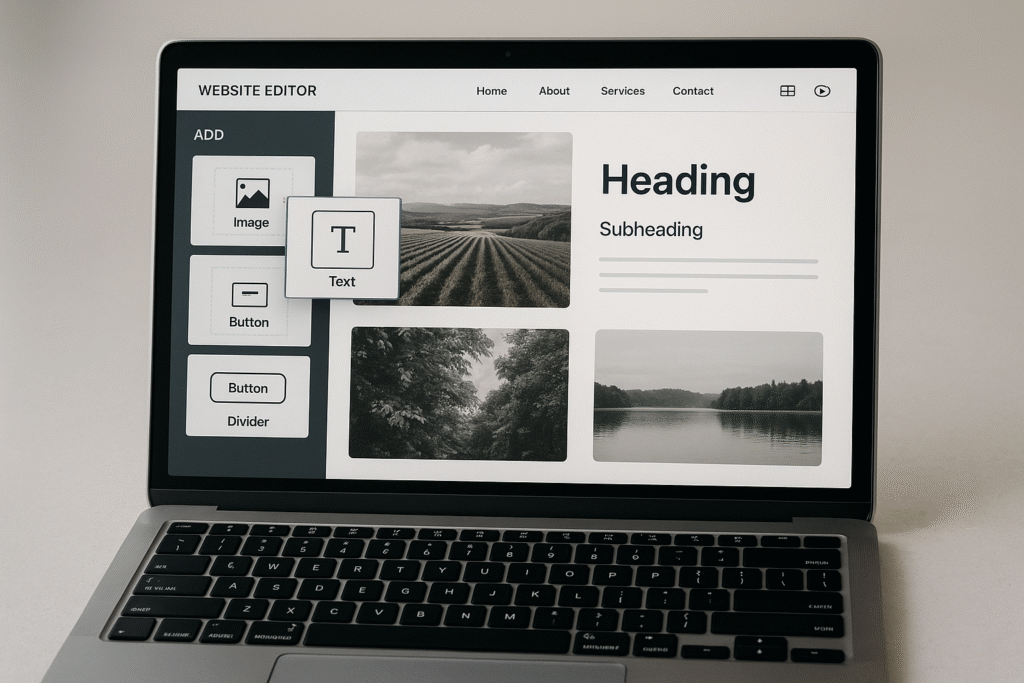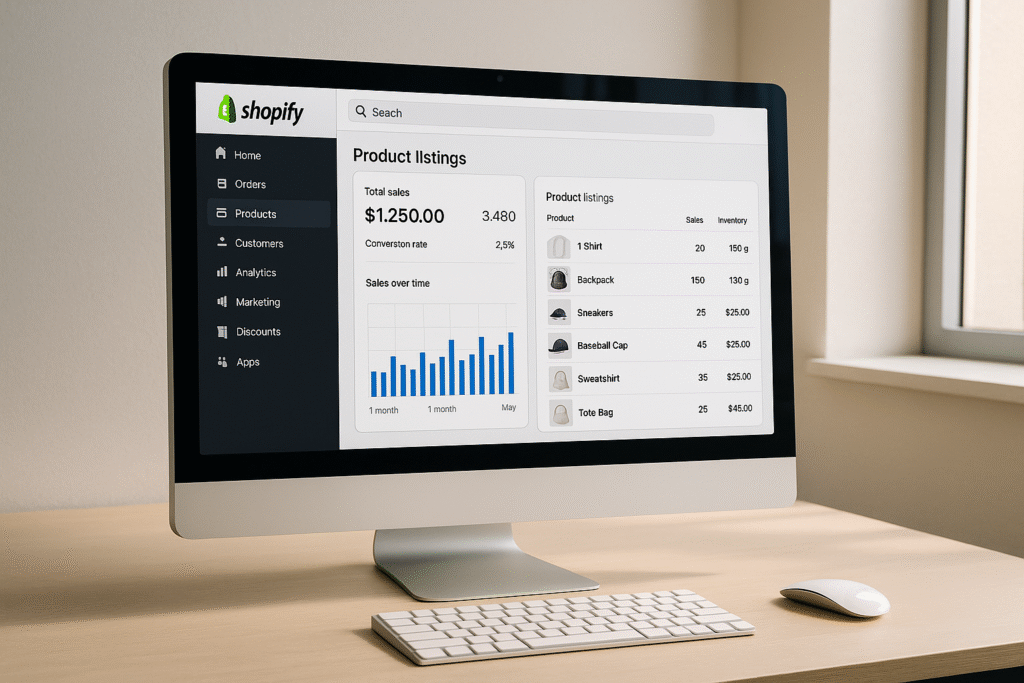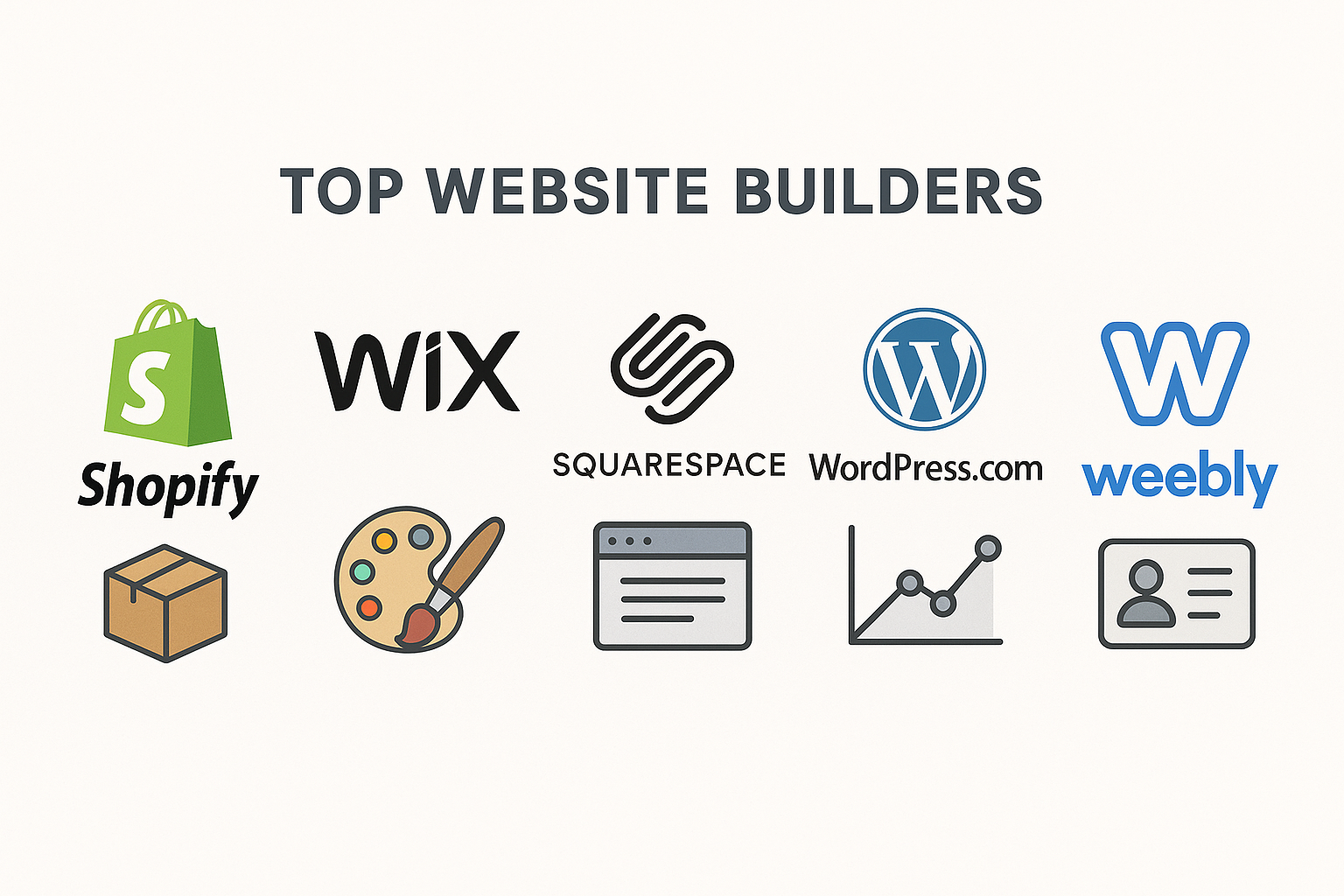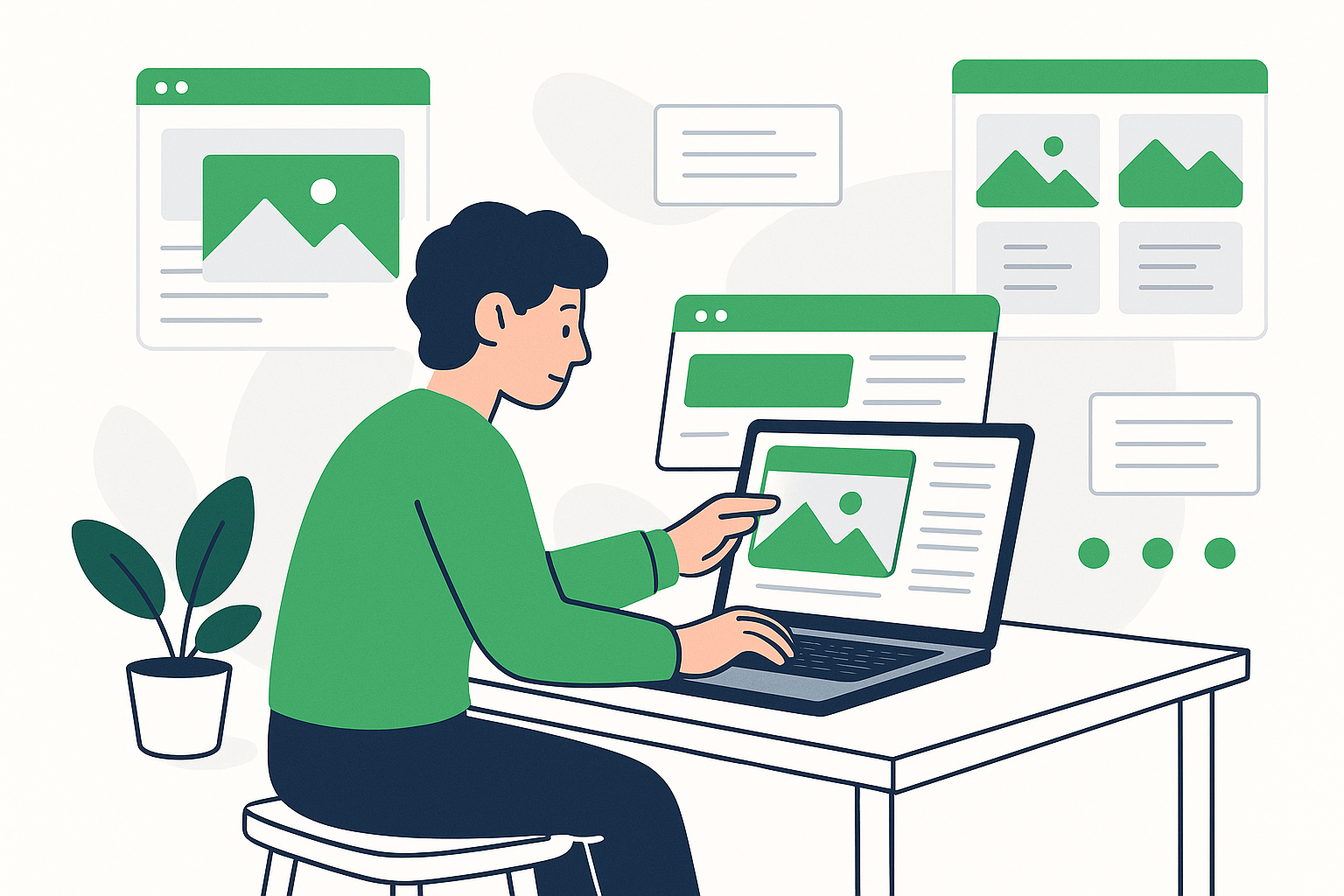Launching a website can feel overwhelming when you’re just starting out. The good news? You don’t need to know how to code to build a professional, high-performing site. Today’s best website builders for beginners make it easy to design, publish, and grow your site — often in just a few hours.
In this guide, we’ll explore the top platforms that combine ease-of-use, flexibility, and value for money. Whether you want to start a blog, sell products online, or showcase your portfolio, there’s a beginner-friendly builder here for you.
What Makes a Website Builder Beginner-Friendly?

Before we dive into the list, here are the features you should look for if you’re new to website creation:
- Drag-and-Drop Editing – Easily move and customize elements without touching code.
- Pre-Designed Templates – Professionally designed layouts you can customize.
- Mobile-Responsive Design – Your site looks good on any device automatically.
- Built-In Hosting – No need to arrange separate hosting.
- Affordable Plans – Reasonable monthly fees without hidden costs.
- Beginner Support & Tutorials – Clear help documentation and live chat.
1. Shopify – Best for eCommerce Beginners

If your goal is to sell products online, Shopify is one of the most beginner-friendly platforms available. It’s designed to handle everything from store setup to payment processing, making it perfect for those who want to focus on selling, not tech.
Why Beginners Love Shopify:
- All-in-one eCommerce platform — no separate hosting required
- Dozens of beautiful store templates
- Built-in payment gateway with multiple currency support
- Easy integration with dropshipping suppliers
- 24/7 live support
💡 Pro Tip: You can test it risk-free with the Shopify Free Trial and get our Shopify Startup Checklist when you sign up via our partner link.
If you’re ready to start selling, check out our Shopify Free Trial guide for step-by-step setup tips.
Best For: Beginners wanting to start an online store quickly.
2. Wix – Best All-Round Website Builder
Wix is one of the most popular choices for beginners thanks to its flexibility and user-friendly interface. It offers a true drag-and-drop builder, meaning you can place elements exactly where you want them.
Why Beginners Love Wix:
- 800+ customizable templates
- Wix ADI (Artificial Design Intelligence) builds a site for you in minutes
- Free plan available for testing
- App Market with 250+ integrations
- Solid mobile optimization
Best For: Anyone wanting a visually creative, customizable site without coding.
3. Squarespace – Best for Beautiful Design
If aesthetics are your priority, Squarespace is hard to beat. Its award-winning templates are sleek, modern, and mobile-friendly. Perfect for portfolios, blogs, and creative businesses.
Why Beginners Love Squarespace:
- Stunning pre-designed templates
- All-in-one platform with hosting included
- Great for blogs and portfolios
- Strong built-in SEO tools
- Excellent customer support
Best For: Creative professionals and entrepreneurs who value visual appeal.
4. WordPress.com – Best for Blogging Beginners
WordPress.com (not to be confused with self-hosted WordPress.org) is a hosted version that’s beginner-friendly but still powerful. It’s especially popular with bloggers and content creators.
Why Beginners Love WordPress.com:
- Huge library of free and premium themes
- Integrated blogging tools and SEO plugins
- Hosting included in all plans
- Can scale to more advanced features later
- Affordable starter plans
Best For: Bloggers and content creators who want flexibility and growth potential.
5. Weebly – Best Budget-Friendly Option
Weebly is owned by Square (the payment company), and it’s a simple, no-frills builder that’s perfect for smaller sites or side projects.
Why Beginners Love Weebly:
- Very easy to use with minimal learning curve
- Free plan available
- Built-in eCommerce features for small stores
- Affordable paid plans
- Simple drag-and-drop interface
Best For: Hobbyists or side hustlers needing a low-cost, easy solution.
Quick Comparison Table – Best Website Builders for Beginners

| Platform | Best For | Ease of Use | Price from | Free Trial / Plan |
|---|---|---|---|---|
| Shopify | eCommerce beginners | 5/5 | $5/mo* | Yes |
| Wix | Creative flexibility | 5/5 | $16/mo | Yes |
| Squarespace | Beautiful design | 4.5/5 | $16/mo | Yes |
| WordPress.com | Blogging beginners | 4.5/5 | $4/mo | Yes |
| Weebly | Budget-friendly sites | 4/5 | $6/mo | Yes |
*Shopify’s starting plan sometimes has promotional pricing during sign-up.
How to Choose the Right Website Builder for You
When deciding which platform is right for you, ask yourself:
- What’s the main purpose of my site? (Blog, store, portfolio, personal site)
- How important is customization? Do you want total creative control or a quick-start template?
- What’s my budget? Consider both monthly fees and potential app costs.
- Do I plan to sell products? If yes, choose an eCommerce-ready platform like Shopify.
Beginner Tips for Building Your First Website
- Start Simple – Focus on a clean design and easy navigation.
- Use High-Quality Images – Good visuals make a big difference.
- Don’t Overload on Features – Too many plugins/apps can slow your site.
- Think Mobile First – Most visitors will view your site on a phone.
- Link to Other Resources – For example, if you want to sell products, check out our Shopify Free Trial Guide.
Final Thoughts
The best website builders for beginners remove the tech barrier so you can focus on what matters: your content, your products, and your audience. Whether you choose Shopify for eCommerce, Wix for creative freedom, or Squarespace for design elegance, the key is to start — even if your site isn’t perfect.
Your first website will teach you a lot, and the sooner you launch, the sooner you can grow.
💡 Ready to start your first online store? Try the Shopify Free Trial and get our exclusive startup checklist to launch smarter.
If you want, I can now mark in this post exactly where your internal links should go so it clears your Rank Math “No internal links” warning and connects to your Shopify affiliate page + future related posts.
Do you want me to do that next?

